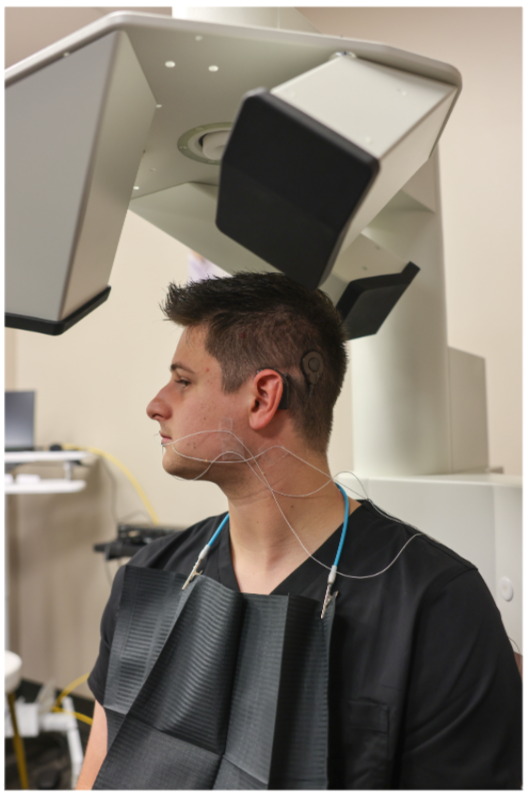By Khaleel Razak, Ph.D.
Brain oscillations (brainwaves) are associated with specific cognitive and sensory processes. How age-related hearing loss (presbycusis) alters the oscillations is unclear. Age-related speech recognition problems can be caused by changes in neurotransmission (chemical messaging between nerve cells) and temporal processing (the perception of sound within a defined time frame).
These heatmaps show the differences in the brain’s gamma oscillations between young (age 3 months) and old (age 24 months) mice. Red indicates increases from the baseline, while blue shows decreases. The top row are the differences after 70 dB sounds were introduced to the young mice and 90 dB SPL to the old mice, to account for age-related hearing loss. In the bottom row, significant differences in gamma brainwaves are shown as the mice aged in both the auditory cortex (AC) and the frontal cortex.
We set out to test the hypothesis that gamma oscillations in the brain, whether in the resting state or in the presence of noise, decline with presbycusis. We used a mouse model genetically modified to acquire presbycusis across three different ages (young, middle age, old). Electroencephalograms (EEGs) measured the brain’s electrical activity.
Our study, published in Hearing Review in October 2020, found several age-related changes: gamma oscillations and entrainment (synchrony) decrease with age in the mice, but there was not an age-related difference when it comes to the effect of movement on gamma oscillations; movement was found to increase gamma power in all age groups of mice. We also found that even when auditory responses were robust in older mice, we saw a decline in their temporal processing.
The results of this study provide novel markers of presbycusis-related auditory processing deficits. Because EEGs are commonly recorded in humans, the mouse data may help facilitate the development of therapeutics to delay or reverse central auditory processing deficits in presbycusis.
A 2009 and 2018 Emerging Research Grants recipient, Khaleel Razak, Ph.D., is a psychology professor at the University of California, Riverside. His 2018 grant was generously funded by the General Grand Chapter Royal Arch Masons International.







We are proud that Hearing Health Foundation-funded scientists are always well represented at Association for Research in Otolaryngology MidWinter Meeting.